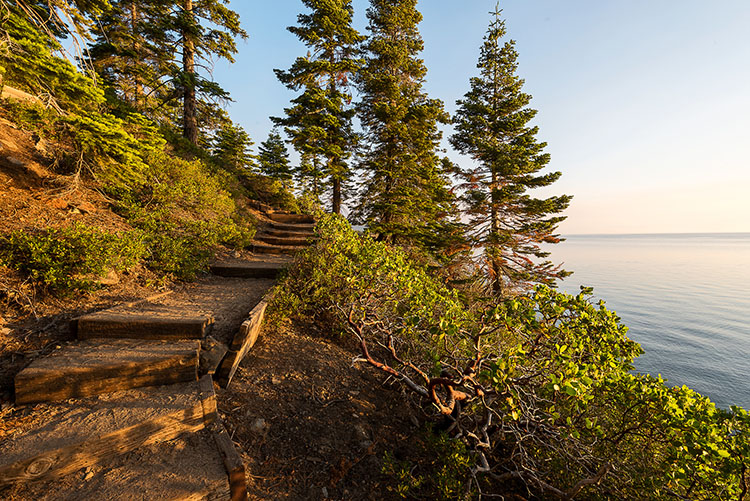D.L. Bliss State Park to Remain Closed into Summer 2025
Contact:
Robert Griffith
Sierra District Superintendent
(530) 525-7232
TAHOMA — California State Parks today announced D.L. Bliss State Park will remain closed for camping and partially closed for day use into summer 2025. This extended closure is necessary to complete an ongoing waterline infrastructure replacement. Campground reservations for the 2025 season at D.L. Bliss State Park will not be available until further notice.
The following day-use areas remain accessible:
- Lester Beach and Calawee Cove: These areas will remain open for water access from Lake Tahoe and foot access via the Rubicon Trail from Emerald Bay State Park.
- Backcountry Areas: Portions of D.L. Bliss State Park west of Highway 89 will continue to be available for winter backcountry use.
- Bouldering/Rock-Climbing Areas: Popular bouldering and rock-climbing sites located just east of Highway 89, closed for the past two seasons, will reopen in 2025 for walk-in access from designated roadside parking areas.
Please note: No restroom or trash services will be available at these locations. Visitors are encouraged to practice “Leave No Trace” principles to minimize environmental impact. Due to construction activities on the park roadways, emergency response vehicle access may be limited, and response times could be delayed.
The public is invited to visit nearby campgrounds and day-use access areas at Emerald Bay State Park and Ed Z’berg Sugar Pine Point State Park, which are expected to be fully open during summer 2025.
California State Parks appreciates the public’s understanding and cooperation as it works to improve D.L. Bliss State Park for all visitors. For further updates, please monitor the D.L. Bliss State Park webpage.

Subscribe to California State Parks News via e-mail at NewsRoom@parks.ca.gov
California State Parks provides for the health, inspiration and education of the people of California by helping to preserve the state’s extraordinary biological diversity, protecting its most valued natural and cultural resources, and creating opportunities for high quality outdoor recreation.
